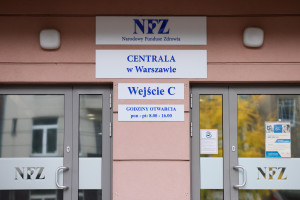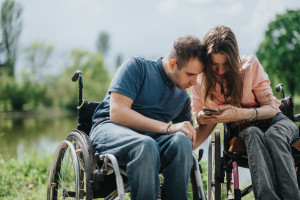50% of lung cancer patients are over 70 years old

Lung cancer remains the leading cause of cancer deaths among both men and women. The number of cases is increasing year by year. Data from the National Cancer Registry shows that 22,000 people are diagnosed with the disease each year, and forecasts suggest that this number could rise to 23,500 by 2025.
Nearly 80% of patients are diagnosed with non-small cell lung cancer, of which 76% are in the advanced stages of the disease.
"Elderly patients constitute a special group of patients. It is estimated that people over 70 years of age constitute approximately 50% of all lung cancer patients. At the same time, this is an extremely diverse group of patients – some patients experience frailty, cognitive impairment, and limited organ function. Eligibility for treatment of elderly patients should take these differences into account," noted Dr. Magdalena Knetki-Wróblewska, chair of the Geriatric Oncology Section of the Polish Society of Clinical Oncology, quoted in a press release sent to PAP.
Elderly lung cancer patients suffer from various chronic diseases, such as heart failure, diabetes, COPD, and kidney disease. Reduced physical function and high sensitivity to chemotherapy toxicity make many of them ineligible for standard treatment.
Aleksandra Wilk, director of the Lung Cancer Section of the To się Leczy Foundation, emphasized that older people with advanced non-small cell lung cancer (NSCLC) often have contraindications to platinum-based doublet chemotherapy. Therefore, single-drug chemotherapy is currently the most commonly used treatment for this group of patients.
- The effectiveness of such treatment is limited because the side effects of chemotherapy can be burdensome for the patient, which translates into a reduced quality of life and an unfavorable prognosis - she explained.
The hope for seniors with advanced non-small cell lung cancer lies in immunotherapy used alone (as monotherapy). "Immunotherapy has been a valuable treatment option for patients with advanced non-small cell lung cancer for several years. In some patients, it allows for long-term disease control," emphasized Dr. Knetki-Wróblewska. She added that its safety profile is different from that of chemotherapy. Primarily, it is associated with a lower risk of exacerbation of coexisting chronic renal failure or cardiovascular disease.
Currently, in Poland, immunotherapy alone can be used to treat lung cancer patients whose tumor cells express the PD-L1 protein in at least 50 percent of their cells. Patients whose tumor cells express PD-L1 in less than 50 percent of their cells can only be treated with immunotherapy in combination with chemotherapy.
Dr. Knetki-Wróblewska recalled that the results of a study were published in 2023. This study included, among others, lung cancer patients over 70 years of age in very good general condition, with significant comorbidities or contraindications to platinum-based chemotherapy. Patients were eligible for immunotherapy (with an immunocompetent drug called atezolizumab) regardless of the presence of the PD-L1 protein on their cancer cells.
"After two years of follow-up, the survival rate of patients treated with atezolizumab was almost twice as high as that of standard single-agent chemotherapy," emphasized Dr. Knetki-Wróblewska. Therefore, in her opinion, expanding the indications to include monotherapy in cases of contraindications to chemotherapy would allow for an individualized therapeutic approach.
"An additional advantage of atezolizumab is the ability to administer it as a short subcutaneous injection, which is crucial for elderly patients with difficult intravenous access," added the specialist. Subcutaneous atezolizumab has already been reimbursed in Poland.
Wilk said seniors should be under special protection by the healthcare system. "They're still someone's husband, wife, parent, grandfather, grandmother, brother, or sister who worked and contributed to health insurance their entire lives," she said. She added that the lack of reimbursed, effective, and safe treatment means a poorer prognosis for this group of patients.
"On World Lung Cancer Day, it's worth noting that lung cancer treatment outcomes in Poland have the potential to improve. The drug program includes a growing number of modern therapies, both for patients undergoing surgery, those undergoing radiochemotherapy, and those eligible for treatment for metastatic lung cancer," noted Dr. Knetki-Wróblewska.
She assessed that the coordination of the diagnostic and therapeutic process requires improvement. "It's also worth emphasizing that early detection of lung cancer increases the chance of cure, which is why early lung cancer detection programs are being conducted, utilizing low-dose computed tomography," the oncologist concluded.
Copyrighted material - reprint rules are specified in the regulations .
rynekzdrowia











